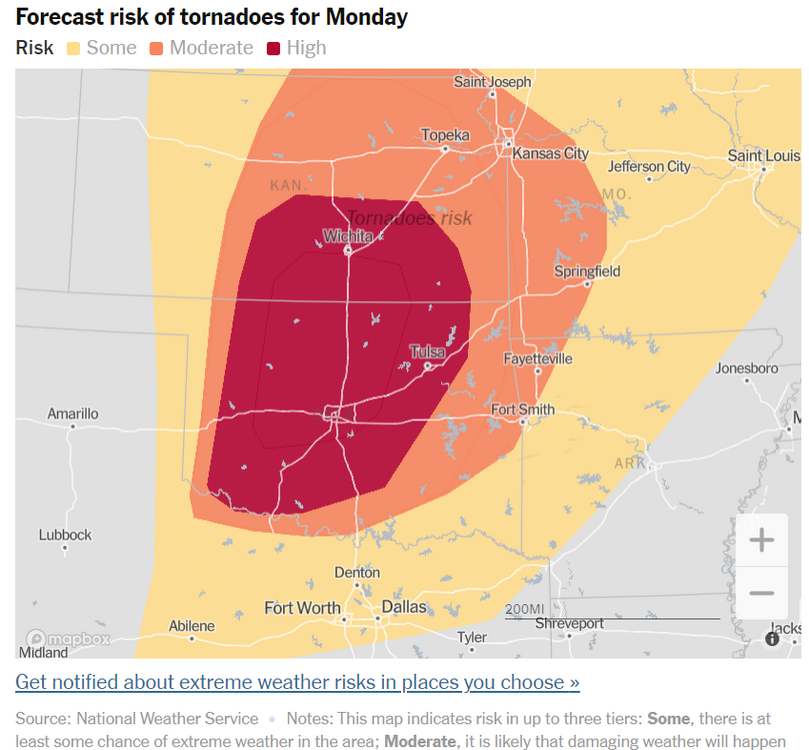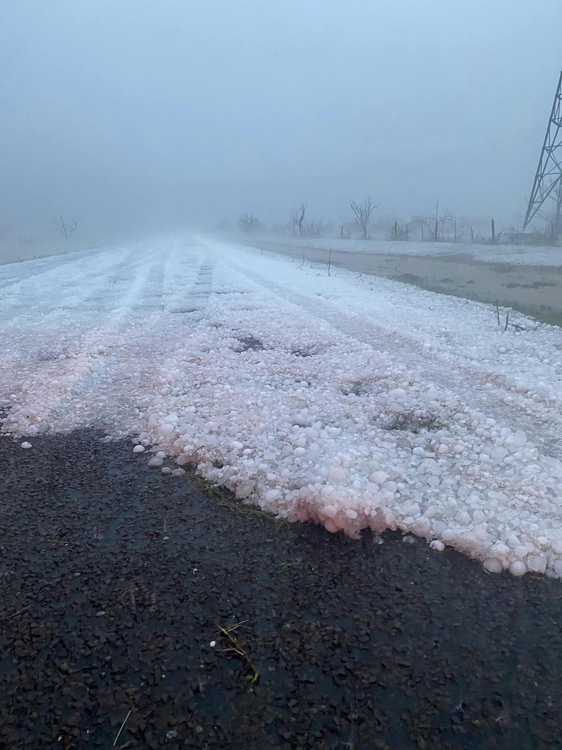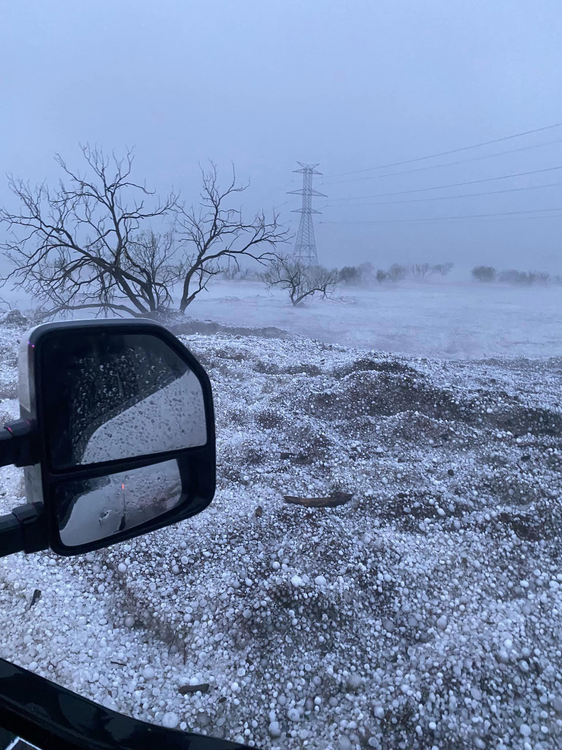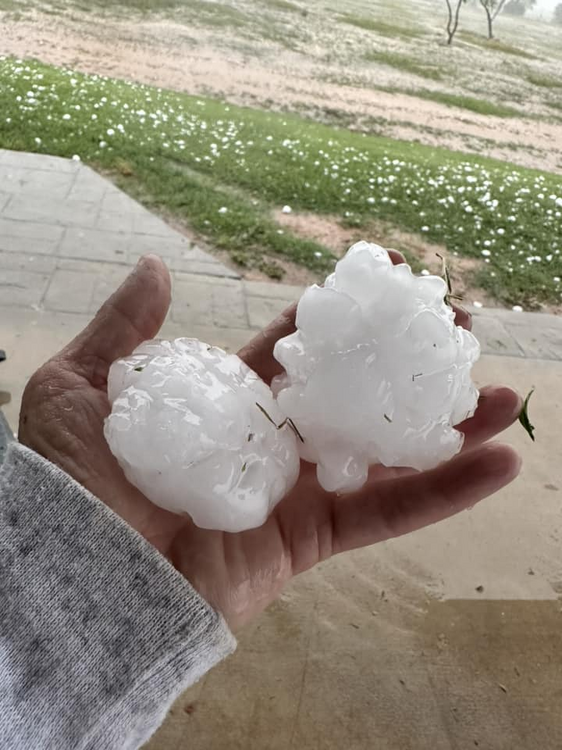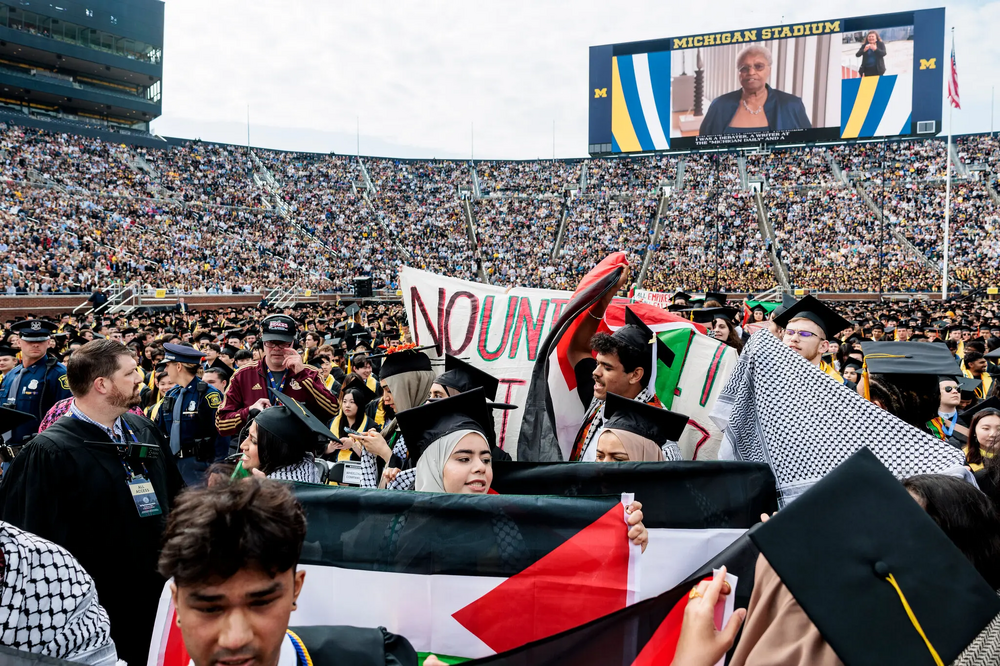Football ...
Basketball ...
Baseball ...
Other Sports ...
Futbol ...
🤫995🤫 ...
Gambling ...
Movies & TV ...
Music ...
Hobbies ...
Lulz ...
Food & Travel
...
Daily Texan ...
6th Street Journal ...
Cloak Room ...
Help ...
For Sale ...
Board Discussion ...
Advertise...
Tailgate Donations
-
Posts
11722 -
Joined
-
Days Won
2
Content Type
Profiles
Forums
Store
Downloads
Recruiting - 2020
2019-2020 Football Season
Football
Entertainment
Sports
News and Business
Cloak Room
Transfer Portal
Recruiting
Events
Everything posted by bolverk
-
@TKthunder2 Take the results from this recent poll (note the date and time of its release) for whatever it's worth, but the status quo of US support isn't too popular. Yeah, some of the protesters' antics have been ridiculous/unacceptable, but that doesn't mean the core message is necessarily unpopular. Note for full transparency: 538 rates them a little above the middle of the pack, ranked 110 out of 277. https://projects.fivethirtyeight.com/pollster-ratings/
-
Rain bomb has been part of the Shaggy/Surly lexicon for at least five years.
-
And the grift goes on. The grift goes on. Right-Wing Nonprofit Paid Millions to Companies With Ties to Insiders The Conservative Partnership Institute’s three highest-paid contractors had connections to the group’s leaders or their relatives, raising concerns about self-dealing. The Conservative Partnership Institute, a nonprofit whose funding skyrocketed after it became a nerve center for President Donald J. Trump’s allies in Washington, has paid at least $3.2 million since the start of 2021 to corporations led by its own leaders or their relatives, records show. In its most recent tax filings, the nonprofit’s three highest-paid contractors were all connected to insiders. One was led by the institute’s president, Edward Corrigan, and another by its chief operating officer. At a third contractor, the board members included the group’s senior legal fellow Cleta Mitchell, a lawyer who supported Mr. Trump’s efforts to overturn the 2020 election. Last year, the Conservative Partnership Institute hired a fourth company connected to an insider: a fund-raising firm run by Mr. Corrigan’s brother, Patrick Corrigan. Public filings show the company received a contract three weeks before the firm was legally formed. The Conservative Partnership Institute applied to the Internal Revenue Service as a tax-exempt nonprofit, and the agency approved. That means donations to the group are tax deductible, like gifts to a food bank or the American Red Cross. It also means that, by law, its money must serve the public good rather than private interests. The nonprofit has pushed those limits by entwining itself with only one faction of American politics. It pays high salaries to some of Mr. Trump’s former officials, hosts retreats for Republican lawmakers at a rural compound and funds efforts to vet people and ideas for a second Trump term. Legal experts say these insider transactions also raise concerns about self-dealing. While hiring insiders is permitted when certain safeguards are in place, the payments moved money out of daylight and into opaque entities that the nonprofit’s leaders helped control. “There’s no checks and balances,” said Michael West, a lawyer at the New York Council of Nonprofits. Because there is no real third party to determine whether the insider-led companies were charging the nonprofit a fair price, Mr. West said, “the potential for overpayment here is epic.” Mr. Corrigan, the institute’s president, did not respond to questions about what steps the group took to assure that it was not overpaying the insiders’ companies. The companies did not say what rates they charged. cont'd:
-
Netanyahu has already said it wouldn't matter if they were going to sign onto the deal and said they were going to invade anyway. Palestinian civilians are going to get fucked. Hamas said in a statement its top leader, Ismail Haniyeh, had delivered the news in a phone call with Qatar’s prime minister and Egypt’s intelligence minister. After the release of the statement, Palestinians erupted in cheers in the sprawling tent camps around Rafah, hoping the deal meant an Israeli attack had been averted. ***** In a fiery speech Sunday evening marking Israel’s Holocaust memorial day, Netanyahu rejected international pressure to halt the war, saying that “if Israel is forced to stand alone, Israel will stand alone.” On Monday, Netanyahu accused Hamas of “torpedoing” a deal by not budging from its demand for an end to the war and a complete Israeli troop withdrawal in return for the hostages’ release, which he called “extreme.” https://apnews.com/article/israel-palestinians-gaza-hamas-war-humanitarian-aid-8659eae6e0a7362504f0aa4aa4be53e0
-
Yep, he's already pretty much stated it doesn't matter. They're going in, ceasefire or no ceasefire. Didn't even bother to show up for talks in Cairo over the weekend.
-
.thumb.jpeg.d4dd1c42a30a2388aa2401fca11af3ec.jpeg)
Waiting for the sky to fall (Catch all tornado thread)
bolverk replied to Royalfan5's topic in Daily Texan
Adding this article for good measure: Rare, Highest-Level Tornado Risk Issued for Oklahoma and Kansas Severe thunderstorms could bring large hail, damaging winds and powerful tornadoes to the Southern and Central Plains on Monday, forecasters said. NOTE TO BIG COUNTRY & EDWARDS PLATEAU SURLYITES: Yellow area extends down to Brownwood, Brady, Junction, Sonora, San Angelo, Ballinger, Coleman, and Sweetwater. Forecasters have issued a rare, high-level risk warning for tornadoes this afternoon and evening across central Oklahoma, including Oklahoma City and portions of Kansas. Multiple strong, long-tracked tornadoes, as well as very large and destructive hail, are expected, according to the Storm Prediction Center. “The biggest area of concern is definitely Oklahoma and portions of south-central Kansas,” Kelly Butler, a meteorologist in the Wichita office of the National Weather Service, said on Sunday. The Storm Prediction Center, which is part of the Weather Service, predicted its highest risk level for the first time since March 31, 2023. On that day, 131 tornadoes formed across 11 states from the Midwest to the South. The last high-risk level for Oklahoma was May 20, 2019, when 35 tornadoes spawned across five states, mainly in the Plains. Here’s what to know about the storms: There is a chance for “strong to potentially long-track tornadoes, including large to giant hail, baseball-and softball-size,” according to Ms. Butler. Storms should begin to form in Kansas from early to midafternoon. Later in the day, storms will begin in Western Oklahoma and push east well into the evening and overnight. There is some possibility of tornadoes, although less than in the high-risk area, in Arkansas, Iowa, Missouri, Nebraska, South Dakota and Texas. Forecasters in Oklahoma City warned that any storm that forms could produce a dangerous tornado. Forecasters raised the risk level Monday morning as the conditions across the Plains evolved, increasing their confidence that multiple significant tornadoes along potentially long paths will occur. “Anybody in the affected areas should have a safety plan,” Ms. Butler said. The Weather Service described the environment in southern Kansas and into Oklahoma as being “similar to some past higher-end, and even historic, severe weather and tornado events.” A possible flood risk could also occur, as heavy rain increases over parts of eastern Kansas and Nebraska, as well as western Iowa and Missouri as a front moves out of the Rockies, according to the Weather Prediction Center. The Weather Prediction Center warned of a slight risk of excessive rainfall over parts of the Central Plains and Middle Mississippi Valley from Monday into Tuesday morning. The heavy rain could produce flash flooding in urban areas, roads, small streams and low-lying areas. The severe weather risk comes a week after more than two dozen tornadoes were reported and at least five people were killed in Oklahoma and Iowa, including an infant, the authorities said. The current threat will not end Monday. More storms are forecast for the next couple of days, primarily on Wednesday, from Texas to Ohio. -
For sure. And it can be a hard sale as it's not a new water supply but just firms up existing supplies. The best thing about it, not considering all the logistics, is the prevention of evaporation. Isn't there some crazy stat that something like 50% of the water is lost due to that?
-
You're never going to believe this, but UC-Berkely BERKELY!!! BERKELY!!! seems like they're handling it the best by respecting speech and not calling in the cops to "crack skulls" and inflaming the protesters. Berkeley takes light touch on Gaza protests. Columbia called the police May 2 (Reuters) - At Columbia University, tensions between the administration and students protesting over Israel's war in Gaza have reached the point that scores of New York City police marched onto campus to clear an encampment and arrest demonstrators who had commandeered a classroom building. It was the second time in as many weeks that the administration has called on police to control the protests. Students have been suspended, and threatened with expulsion. Police are now stationed around-the-clock on campus. Nearly three thousand miles away at the University of California, Berkeley, the scene has been far different. Student demonstrations have so far taken place without arrests or disruption of campus operations. The contrast in how protests have played out at the two prestigious institutions - both with long histories of student activism - illustrates the range of factors at play in how school administrations, students and the police navigate what can quickly turn into a full-blown crisis. South of Berkeley at UCLA, part of the same university system, police on Thursday morning flattened a pro-Palestinian camp, a day after it was attacked by pro-Israel counter protesters. Authorities at the Los Angeles school had declared the encampment an unlawful assembly. Similar crackdowns have occurred at colleges across the country, from Arizona State to Virginia Tech and Ohio State to Yale. Police have arrested around 2,000 campus protesters to date. Still, some universities - including Berkeley, Northwestern and Brown - have managed to avoid confrontations between the police and students. Education experts say these cases offer lessons in keeping tensions from boiling over, a key one being a university's experience with balancing student activism against pressure from donors, interest groups and politicians. Berkeley Chancellor Carol Christ has allowed students to maintain a protest space on campus since they began erecting tents April 22 on the steps of Sproul Hall, where Martin Luther King gave a 1967 civil rights speech. Dan Mogulof, a spokesman for the university, said that remained the case Thursday, despite a scuffle Wednesday evening between the co-founder of a Zionist activist group and a pro-Palestinian protester. It was the first violence after days of peaceful assembly. "We are urging everyone to avoid engaging in pointless provocation and physical conflict," Mogulof said, adding that Christ was in talks with encampment leaders after the Wednesday incident led to three minor injuries. He said the school would respond to violence in line with University of California policy. That guidance tells administrators to avoid police involvement unless it's absolutely necessary and the physical safety of students, faculty and staff is threatened. That policy is rare, with most universities having some kind of regulation that prohibits permanent encampments or outlaws overnight student activities on campus. The University of California system has seen in the past where police involvement can lead. In a 2011 Berkeley protest during the Occupy movement against economic inequalities, campus police clubbed and jabbed students with batons. Then-Chancellor Robert J. Birgeneau later apologized, and the UC system shifted to the policy of restraint Berkeley spokesman Mogulof described.
-
As I said in my first post on this topic: Edit: There might be some loophole for racial harassment since he targeted his speech toward a specific individual. I don't know, however, if his speech crossed that threshold because I don't know where that line lies. There may have been a discrimination loophole for free speech in the OU frat case, too, since it was a fraternity-sponsored event where an African American student could reasonably assume they'd be discriminated against on racial grounds from joining that fraternity. Maybe that would be sufficient grounds for getting around First Amendment concerns. I don't know. What I do know is that I'm generally against government curtailment of constitutionally guaranteed free speech. There's a line you've got to cross first, and I'm not sure the Ole Miss fuckhead crossed it. I would, however, like to see him face non-governmental consequences.
-
I am serious, but I didn't realize that a couple of them were expelled from school. A very quick search led me to a wiki entry on it, where their expulsion is called into question on constitutional grounds, and several experts agree with my layman's opinion. I may or may not be right, but my initial thoughts about the Ole Miss frat rat are not as ridiculous as you make it out to be. University of Oklahoma president David Boren ordered the expulsion of the two students who led the chant, Michael Levi Pettit[12] and Parker Rice.[12] Through two letters addressed to them, Boren justified their expulsions on the grounds that they "played a leadership role" in creating "an extremely hostile learning environment".[13][14][7] The action taken by the university was based on school's Student Rights & Responsibilities Code.[15][16][17] Rice and Pettit, both Dallas natives, enrolled in the Austin and Dallas branches of the University of Texas, respectively. The LA Times reported that Boren appeared to be alluding to Title VI of the Civil Rights Act, which bans racial discrimination at universities receiving federal money.[17] However, the expulsions may have been a violation of the students' first amendment rights.[17] First Amendment law specialist and UCLA Law professor Eugene Volokh asserted that President Boren's actions were unconstitutional.[18] Oklahoma State University media law associate professor Joey Senat stated that the chant was offensive but is still protected free speech.[19] Glenn Reynolds, a professor of law at the University of Tennessee, expressed the opinion that as a former U.S. senator, Boren should have known that the university was breaking the law in expelling the two students.[20] A Washington Post article reported that a Sigma Chi fraternity successfully challenged similar action taken against them by George Mason University in 1992.[21]
-
As far as I'm aware, he was only kicked out of his frat, not the school. I don't think a university (government entity) has the right to kick him out based on the content of his speech alone. Edit: There might be some loophole for racial harassment since he targeted his speech toward a specific individual. I don't know, however, if his speech crossed that threshold because I don't know where that line lies.
-
More protests are planned at UT today.
-
Right, but here's the deal: It looks like those universities that are willing to sit down and actually talk to the students are the ones where you're seeing protests fizzle. Maybe open the books and explain to the kids how their investments operate.
-
Vassar protesters removed their tents after the college agreed to review its investments. Pro-Palestinian protesters dismantled their encampment at Vassar College in Poughkeepsie, N.Y., on Saturday after reaching an agreement with the institution that requires administrators to review a divestment proposal. Student demonstrators pitched dozens of tents on Vassar’s campus, starting on Tuesday. The liberal arts college is a bastion of progressive ideas with a long history of student protest, and Vassar’s president said in a statement this week that she hoped to resolve the current disagreement with pro-Palestinian demonstrators peacefully. In the agreement reached on Saturday, Vassar officials agreed to review a proposal to divest funds from “defense-related investments, such as militarized surveillance and arms production,” and to support student fund-raising efforts in support of refugees, according to a statement by the president, Elizabeth H. Bradley. The divestment language did not mention Israel or the war in the Gaza Strip, as the protesters had in their demands. But Ms. Bradley said administrators had also agreed to “recruit and support Palestinian students and scholars-at-risk, who have lost educational and professional opportunities” since Oct. 7, a reference to the attacks in Israel by Hamas and its allies that prompted Israel’s war in Gaza. “With these commitments, the college will work to improve our understanding, dialogue about, and educational programming concerning peace and conflict, with focus on Gaza and the Middle East,” she said. The Vassar agreement is one of several in which student protesters have agreed to clear camps in exchange for commitments to discuss institutional investment policies around Israel. Students for Justice in Palestine at Vassar, the group that organized the encampment and negotiated with administrators, said in a statement on social media that it did not feel like a victory. “We are not happy about the concessions we’ve made, but our work is not done,” the group said in the statement, adding that the administration had not agreed to all of the demands laid out by protesters when they launched the encampment. Those demands included calls for the Vassar administration to release a public statement calling for “an immediate end to Israel’s siege on Gaza and an end to U.S. aid for Israel,” and to completely boycott Israeli academic institutions, including Vassar-sponsored study abroad programs in Israel. “At this time, we believe this is the most strategic decision we can make in order to further our efforts for divestment and Palestinian liberation,” the students said of the agreement. They said they would donate the roughly $7,000 they had raised since launching their encampment to families in Gaza, and redistribute any donated supplies to people and organizations in Poughkeepsie.
-
Are they only asking for Hamas prisoners? Thousands of Palestinians who have nothing to do with Hamas have been rounded up by the IDF, and multiple stories of the systematic abuse of those prisoners have been published and posted here on Surly.
-
Your Reuters article mentions this in passing. More details: Netanyahu calls Al Jazeera an ‘incitement channel’ as it is shut down in Israel. Prime Minister Benjamin Netanyahu of Israel said on Sunday that his cabinet had voted to shut down the Israeli operations of Al Jazeera, a Qatar-based network that is a major source of news in the Arab world and has often highlighted civilian suffering in Gaza during Israel’s war with Hamas. “The government under my leadership has decided unanimously: The incitement channel Al Jazeera will be shut down in Israel,” Mr. Netanyahu said on X, formerly Twitter. It was not immediately clear whether the closing would be temporary or whether it would affect the network’s reporting in Gaza and the West Bank. Journalism organizations have said that such a closure, which had been under discussion in Israel for weeks, would be a blow to press freedom. Israel’s communications minister, Shlomo Karhi, said in a video statement that Al Jazeera “will no longer broadcast here in Israel, and its equipment will be confiscated.” In a statement in Arabic, Al Jazeera condemned Israel’s move, which it called a “criminal act.” “Israeli’s suppression of the free press to cover up its crimes has not deterred us from performing our duty,” the network said. The decision could complicate Israel’s relationship with Qatar, which helps fund the network and has also been helping to mediate cease-fire negotiations between Israel and Hamas. The Qatari government did not immediately comment. Mr. Netanyahu said in a statement that Al Jazeera’s reporters had “harmed Israel’s security” and incited violence against its soldiers. He had previously called Al Jazeera a “Hamas mouthpiece.” Israeli lawmakers passed a bill last month allowing the government to temporarily close foreign media outlets that Mr. Netanyahu determined were undermining national security. The order to close Al Jazeera’s local operations will initially apply for 45 days, and a district court judge must approve it within 24 hours before it is carried out, according to Avraham Hasson, an aide to Israel’s minister of communications. Mr. Hasson said the judge could rule to change the length of the closure. The government has the option of extending it for another 45 days, but any extension would also need a judge’s approval. Mr. Netanyahu’s government has had a tense relationship for years with Al Jazeera, which has reported extensively from Gaza during the war between Israel and Hamas that began in October. The war in Gaza has taken a toll on the network’s own employees and their families. In October, Wael al-Dahdouh, the Gaza bureau chief of Al Jazeera’s Arabic-language service, was told live on air that his wife, son, daughter and infant grandson had been killed in central Gaza, where they had been sheltering. In January, his eldest son was killed in an Israeli airstrike, according to the authorities in Gaza.
-
It sounds like extremists on both sides are determined to prolong this war. Meanwhile, more people will suffer. Israeli statements raise concerns about Netanyahu’s commitment to a deal. A group representing families of the Israeli hostages in Gaza expressed concerns Sunday that Prime Minister Benjamin Netanyahu of Israel, under pressure from hard-line members of his governing coalition, was trying to stall or even sabotage a possible deal that could lead to a cease-fire and the release of captives held by Hamas. A major sticking point in negotiations has been Hamas’s consistent demand for a commitment by Israel to end its seven-month military offensive in Gaza and to forgo a planned invasion of Rafah, Hamas’s last bastion in the south of the enclave, and Israel’s reluctance to declare such concessions, according to officials. In the discussions in Cairo, which have been mediated by the United States, Qatar and Egypt, negotiators had been trying to leave some room for ambiguity in the early stages of a three-phased deal that could satisfy both sides. But on Saturday the Israeli government issued two statements to reporters, to be attributed to an unnamed “political official,” saying that contrary to reports, Israel would not agree to end the war as part of a deal. It added that it would not allow mediators to offer Hamas guarantees about the war’s end, while blaming Hamas for scuttling any possibility of a deal by sticking to its demands. Several of the Israeli reporters who received the statements said they had come directly from the prime minister’s office in an unusual breach of the government’s confidentiality rules. Nahum Barnea, a prominent political columnist, said Sunday in Yediot Ahronot, a popular Hebrew daily news outlet, that he felt that the statements were “designed to scuttle the chances of a deal.” The Hostages Families Forum, an Israeli nongovernmental group lobbying for the release of the hostages and supporting their families, said in a statement on Sunday that it was “shocked” to hear about the statements. The group called on Mr. Netanyahu to “disregard all political pressure,” “to lead” and to “show courage.” Mr. Barnea said he believed that Mr. Netanyahu would be freed “of the need to decide” on a deal if Hamas, the mediators and the far-right members of his government could be persuaded that there was not one on the table. Mr. Netanyahu on Sunday vehemently rejected the accusations, saying in a longer statement, in his own name, that Hamas was the party obstructing a deal. “Israel was, and still is, ready to pause the fighting in order to release our hostages,” he said. Though details of a potential deal are still being hashed out, Egypt has been pushing a proposal, with the broad approval of Israeli negotiators, that would begin with a six-week truce, during which 33 of the most vulnerable hostages held in Gaza would be released in exchange for hundreds of Palestinians imprisoned by Israel. Israel would allow the return of hundreds of thousands of displaced Palestinian civilians to northern Gaza with few restrictions, officials have said, previously a major sticking point for Israel. Husam Badran, a senior Hamas official, said on Saturday that the group’s representatives had arrived in Cairo “with great positivity” regarding the latest proposal. But Hamas officials told Arabic news outlets that issues including a permanent cease-fire and full withdrawal of Israeli troops from Gaza remained unresolved. By early Sunday there was still no indication that Hamas had accepted the deal.
-
Pretty sure 250's post was a joke. Tom Thumb stores are only still present in the DFW area. Those photos are four years old and were taken at construction sites during the height of the BLM protests. They were part of a social media hoax, saying that bricks were being staged for protesters to use as weapons.
-
That's insane. Just went to go find something on that and got this from FB. Concho is east of San Angelo, btw, but whatevs. The town they mention is just south of Lake Ivie. https://www.facebook.com/NWSSanAngelo Some photos that a person posted. Click the link for video to see a giant pile of hail next to the road.. https://www.facebook.com/photo?fbid=1228425061477520&set=pcb.1228431311476895 Another posted this shot of the hail at Lake Ivie. @ROFL BOX Is that area too far for you?
-
Abandoning their entire Arctic flank pretty much tells you that they don't seriously consider NATO as an offensive military threat, but we already knew that was simply a pretext for their invasion of Ukraine.
-
TL;DR: 2nd US official, Cindy McCain, says there's a famine in northern Gaza and says it's spreading south. She calls it a "horror". Hamas and Israel are still in negotiations. The latest Israeli offer was well received. Even if Hamas accepts the terms, it will take time to hash out the details. Israel, right now, is a no-show in Cairo, where negotiations have been held. Netanyahu is still determined to invade Rafah, where over a million Palestinians are stuck -- a plan heavily criticized by the international community. Children are now dying of malnutrition. Israel isn't providing the necessary security to aid agencies and has only recently opened one border crossing after receiving much criticism. Bottlenecks still persist due to onerous inspections that some interpret as deliberate to delay aid. The head of UN human rights says this may constitute war crimes since using starvation as a weapon is a serious violation of international law. There are expectations that the International Criminal Court is preparing to issue arrest warrants against senior Israeli officials — including potentially over accusations that they prevented the delivery of aid to civilians in Gaza. Recently, there have been some increases in aid delivery, but it remains inadequate. Parts of Gaza in ‘Full-Blown Famine,’ U.N. Aid Official Says Cindy McCain, the director of the World Food Program, said starvation is entrenched in northern Gaza and is “moving its way south.” The leader of the World Food Program said that parts of the Gaza Strip are experiencing a “full-blown famine” that is spreading across the territory after almost seven months of war that have made delivering aid extremely challenging. “There is famine — full-blown famine in the north, and it’s moving its way south,” Cindy McCain, the program’s director, said in excerpts released late Friday of an interview with “Meet The Press.” Ms. McCain is the second high-profile American leading a U.S. government or U.N. aid effort who has said that there is famine in northern Gaza, although her remarks do not constitute an official declaration, which is a complex bureaucratic process. She did not explain why an official famine declaration has not been made. But she said her assessment was “based on what we have seen and what we have experienced on the ground.” The hunger crisis is most severe in the strip’s northern section, a largely lawless and gang ridden area where the Israeli military exercises little or no control. In recent weeks, after Israel faced mounting global pressure to improve dire conditions there, more aid has flowed into the devastated area. On the diplomatic front, negotiations resumed in Cairo on Saturday aimed at reaching a cease-fire and an agreement to release Israeli and Palestinian hostages. A delegation of Hamas leaders traveled to the Egyptian capital, the Palestinian armed group said. Over the past few days, Israel and mediators in the talks — Egypt, Qatar and the United States — have awaited Hamas’s response to the latest cease-fire proposal, with Hamas signaling that it was open to discussing the Israeli-approved offer. On Friday, Secretary of State Antony J. Blinken said U.S. officials were waiting to see if Hamas “can take ‘yes’ for an answer on the cease-fire and the release of hostages.” “The only thing standing between the people of Gaza and a cease-fire is Hamas,” Mr. Blinken said at the McCain Institute in Arizona. “So we look to see what they will do.” Husam Badran, a senior Hamas official, said in a text message that the group’s representatives came to Cairo “with great positivity” toward the proposed deal. “If there is no agreement, it will be because of Netanyahu alone,” he said, referring to Benjamin Netanyahu, the Israeli prime minister. For weeks, Mr. Netanyahu has vowed that Israeli forces will invade Rafah, where many of Hamas’s remaining military forces are believed to be arrayed alongside some of its leaders. The plan has prompted widespread criticism, including from the Biden administration, fueled by concern for the safety of more than a million displaced Gazans sheltering there.
-
UN Human Rights Chief deplores harrowing killings of children and women in Rafah GENEVA (23 April 2024) – UN Human Rights Chief Volker Türk today decried a series of Israeli strikes on Rafah in the past few days that killed mostly children and women, repeating his warning against a full-scale incursion on an area where 1.2 million civilians have been forcibly cornered. Such an operation would lead to further breaches of international humanitarian law and international human rights law, he said. It would risk more deaths, injuries and displacement on a large scale – even further atrocity crimes, for which those responsible would be held accountable. Already in March, the Security Council had demanded an immediate ceasefire. “The world’s leaders stand united on the imperative of protecting the civilian population trapped in Rafah,” the High Commissioner said. “The latest images of a premature child taken from the womb of her dying mother, of the adjacent two houses where 15 children and five women were killed - this is beyond warfare.” On 19 April, an apartment building was hit in Tal Al Sultan area in Rafah, killing nine Palestinians, including six children and two women. Another strike on two adjacent houses in At Tanour area in eastern Rafah on 20 April reportedly killed 20 Palestinians – 15 children and five women. A strike on As Shabora Camp in Rafah on the same day reportedly left four dead, including a girl and a pregnant woman. As of 22 April, according to the authorities in Gaza, of the 34,151 Palestinians killed in Gaza, 14,685 have been children and 9,670 women. Another 77,084 have been injured, and over 7,000 others are assumed to be under the rubble. “Every 10 minutes a child is killed or wounded. They are protected under the laws of war, and yet they are ones who are disproportionately paying the ultimate price in this war,” said Türk. Türk said he was horrified by the destruction of An Nasser Medical Complex and Al Shifa Medical Complex and the reported discovery of mass graves in and around these locations. He called for independent, effective and transparent investigations into the deaths. “Given the prevailing climate of impunity, this should include international investigators,” he added. “Hospitals are entitled to very special protection under international humanitarian law. And the intentional killing of civilians, detainees, and others who are hors de combat is a war crime.” The High Commissioner said the unspeakable suffering caused by the fighting - alongside the resulting misery and destruction, starvation and disease, and the risk of wider conflict - must end once and for all. He reiterated his call for an immediate ceasefire, the release of hostages and those held in arbitrary detention, and the unfettered flow of humanitarian aid. At the same time, Türk said grave human rights violations were continuing unabated in the occupied West Bank. Despite international condemnation of massive settler attacks from 12-14 April facilitated by the Israeli Security Forces (ISF), settler violence has continued with the support, protection, and participation of the ISF. During a 50-hour long operation into Nur Shams refugee camp and Tulkarem city starting on 18 April, the ISF deployed ground troops, bulldozers and drones, and sealed the camp. Fourteen Palestinians were killed, three of them children. Ten members of the ISF were hurt. The UN Human Rights Office received reports that several Palestinians were unlawfully killed and that the ISF used unarmed Palestinians to shield their forces from attack and killed others in apparent extrajudicial executions. Dozens were reportedly detained and ill-treated. The ISF inflicted unprecedented and apparently wanton destruction on the camp and its infrastructure. On 20 April, the ISF or settlers shot and killed a 50-year-old Palestinian ambulance driver. The ambulance was evacuating two Palestinians injured by live ammunition during an attack by settlers, who were accompanied by the ISF, in As Sawiya, Nablus.
-
Look at this weirdo elderly Jewish college professor with purple gray hair getting manhandled by the cops for videoing them with her phone.
-
Police treatment of a Dartmouth professor stirs anger and debate. The video is jarring: A gray-haired woman tumbles, gets up to reach for her phone, held by police officers, and is yanked and taken to the ground. “Are you kidding me?” a bystander asks. “What are they doing to her?” another adds. Annelise Orleck, a labor historian who has taught at Dartmouth College for more than three decades, was at a protest for Palestinians in Gaza on Wednesday night, when she was knocked to the ground. Dr. Orleck, 65, was zip-tied and was one of 90 people who were arrested, according to the local police. The professor walked away with a case of whiplash. But a short video clip of the episode flew around the internet, intensifying the debate over the relatively swift decision by Dartmouth’s president, Sian Leah Beilock, to call in police to arrest students and clear out an encampment. Unlike other campuses where tents were tolerated for days, the police action at Dartmouth began a little more than two hours after the encampment first appeared, according to the college’s newspaper, The Dartmouth, and students who observed the events on Wednesday. Dr. Beilock defended her decision. “Last night, people felt so strongly about their beliefs that they were willing to face disciplinary action and arrest,” Dr. Beilock said in a message to campus on Thursday. “While there is bravery in that, part of choosing to engage in this way is not just acknowledging — but accepting — that actions have consequences.” Dr. Beilock did not directly address the treatment of Dr. Orleck, who called the message “outrageous.” “Her actions have consequences, too,” Dr. Orleck said in an interview. “The campus is in an uproar. Neither the students nor the faculty have been as radicalized in a long time as they’re feeling today.” “I’ve been teaching here for 34 years,” she added. “There have been many protests, but I’ve never, ever seen riot police called to the green.” Dartmouth declined to comment on the incident. How to handle the encampments has become a grinding challenge for university administrators. Earlier this month, the decision by Columbia University’s president to call in police stirred up protests at campuses across the country. Demonstrations over the war in Gaza have led to more than 2,000 arrests over the last two weeks at universities across the country, according to a New York Times tally. The arrests have also angered some faculty, who have sometimes stepped in to try to help students. The police in Hanover, N.H., the home of Dartmouth, said that the arrested included students and nonstudents, but did not provide a breakdown. The charges included criminal trespassing and resisting arrest. When the Hanover Police Department and the state police asked students to disperse, some did and others didn’t, police officials said. It was unclear what disciplinary action, if any, the arrested students would face from the university. Dr. Orleck said she was charged with criminal trespass and temporarily banned from campus, as a condition of her bail. The college’s administrators said on Thursday that the suspension was an error in the bail process, which they were working to fix. In her message, Dr. Beilock strongly defended the decision to sweep away the encampment. And, she said, a key demand of protesters — that trustees vote on divestment from companies connected with Israel — violated the rules for making such decisions. “Dartmouth’s endowment is not a political tool,” she said, “and using it to take sides on such a contested issue is an extraordinarily dangerous precedent to set.” Dr. Orleck, who once served as the head of Jewish studies at the university, said she had watched with unease as police confrontations with student protesters escalated across the country. She said she wanted to be at the Dartmouth protest because as an older Jewish professor — joined by many other older Jewish professors — her presence, she thought, could help keep her students safe. As the police moved in, arresting students, Dr. Orleck said she started taking videos. “I said to them, and I said it with some anger, ‘Leave our students alone. They’re students. They’re not criminals,’” she said. “The next thing I knew, I was rushed from the back.” Messages left for the local and state police were not immediately returned. One of the short viral videos begins with Dr. Orleck tumbling to the ground. She gets up. She moves toward an officer with her hand extended — grasping for her phone, she said. She is jerked and knocked down again. It is unclear what took place before the video begins. Ivy Schweitzer, a recently retired English professor at the college, said the situation took a turn when campus security stepped back, and outside law enforcement moved in to make the arrests. Dr. Orleck, she said, was recording the police with her phone. “Annelise would never be physical with a police officer,” Dr. Schweitzer said. “But she would put her phone in their face, and I’m sure they wouldn’t like that.”
-
Some actual news: A weekend of graduations begins with a disruption at Michigan. Pro-Palestinian protesters briefly interrupted a graduation ceremony at the University of Michigan on Saturday, as universities holding commencements braced for more tensions generated over the war in Gaza. Dozens of pro-Palestinian supporters in kaffiyeh and graduation caps could be seen unfurling and holding up Palestinian flags in the aisles of the ceremony at Michigan Stadium, as a speaker invoked the school’s “Go Blue” slogan. Protesters marched down the center aisle toward the stage, chanting: “Regents, regents, you can’t hide! You are funding genocide!” One person in the audience could be heard yelling back, “You’re ruining our graduation!” Some patrons sitting in private boxes hung Israeli flags from their seats, as university police blocked the protesters from moving closer to the stage and pushed them toward a section in the back of the venue. Overhead, a plane flying the message “divest from Israel now! Free Palestine!” circled the stadium. Another plane with a banner offered a different message: “We stand with Israel. Jewish lives matter.” The university in Ann Arbor is just one of many schools that have wrestled with how to handle student protests in recent weeks. They include Indiana University Bloomington, Northeastern University and Ohio State University, which are also set to hold graduation ceremonies this weekend. At Ohio State, 38 people have been arrested, according to a tally by The Times. At Indiana University, 57, and at Northeastern University, 98. The turmoil has added another complicated layer to graduation for students, many of whom had their high school senior-year celebrations abruptly cut short by the coronavirus pandemic in 2020. Universities have tried to ensure against major disruptions. Some schools plan to set up designated areas for protests, in a bid to allow the ceremonies to go forward without quashing free speech. And some schools — like Northeastern’s ceremony at Fenway Park — are adhering to strict rules limiting what can be brought inside the large ceremony venues. (Many graduation venues already had limitations in place long before the protests.) The University of Michigan trained volunteers working at the school’s 54 ceremonies on “how to manage disruptions.” “This might include asking someone to relocate a sign or to otherwise stop ongoing disruptive behavior,” said Colleen Mastony, a spokeswoman for the University of Michigan. She added, “Our goal is to support a successful and celebratory event.” On Friday evening, a person not affiliated with the university was arrested after around 200 people gathered outside the University of Michigan Museum of Art to protest a dinner for recipients of honorary degrees, a spokeswoman for the university police department said. At least two schools have altered their graduation ceremonies in light of the ongoing protests. The University of Vermont announced on Friday that Linda Thomas-Greenfield, the U.S. ambassador to the United Nations, would no longer deliver a commencement address scheduled for later this month. And the University of Southern California canceled its valedictorian’s commencement speech and appearances by celebrity speakers, then canceled its “main stage” commencement ceremony altogether, citing the possibility of disruptions. On Friday, the university announced a “Trojan Family Graduate Celebration” in the famed Los Angeles Memorial Coliseum for graduates to attend instead. Over the last academic year, schools across the country have met the protests of thousands of students in different ways: Some administrations have negotiated with demonstrators over their demands, while others have called in the police. While many protests have stopped short of physical confrontations, clashes have included the occupation of a university hall at Columbia University, vulgar and racist taunts hurled by white students at protesters at the University of Mississippi and a violent attack by pro-Israel counterprotesters at the University of California, Los Angeles.
Football ... Basketball ... Baseball ... Other Sports ... Futbol ... 🤫995🤫 ... Gambling ... Movies & TV ... Music ... Hobbies ... Lulz ... Food & Travel ... Daily Texan ... 6th Street Journal ... Cloak Room ... Help ... For Sale ... Board Discussion ... Subscribe!... Donate!... Advertise... COOKIE MONSTER!





